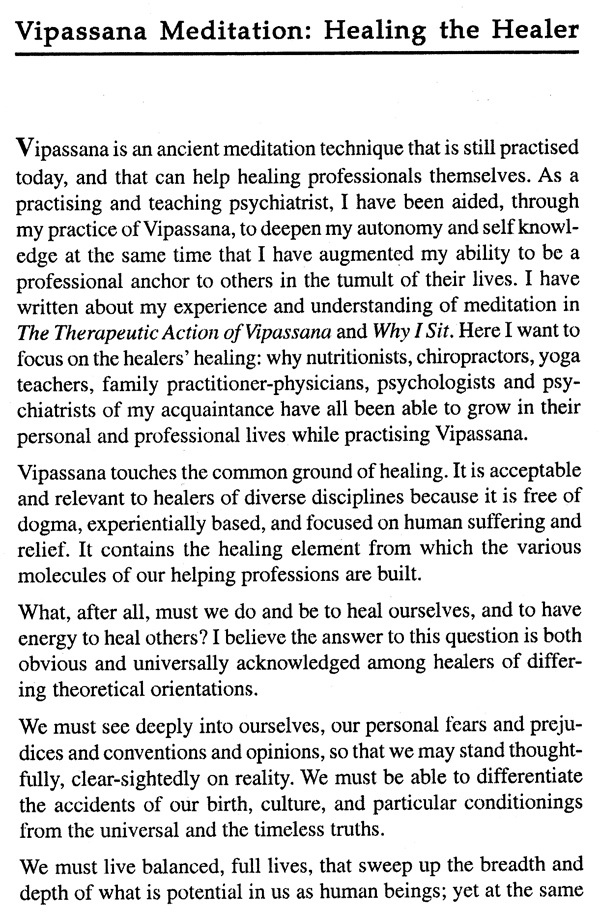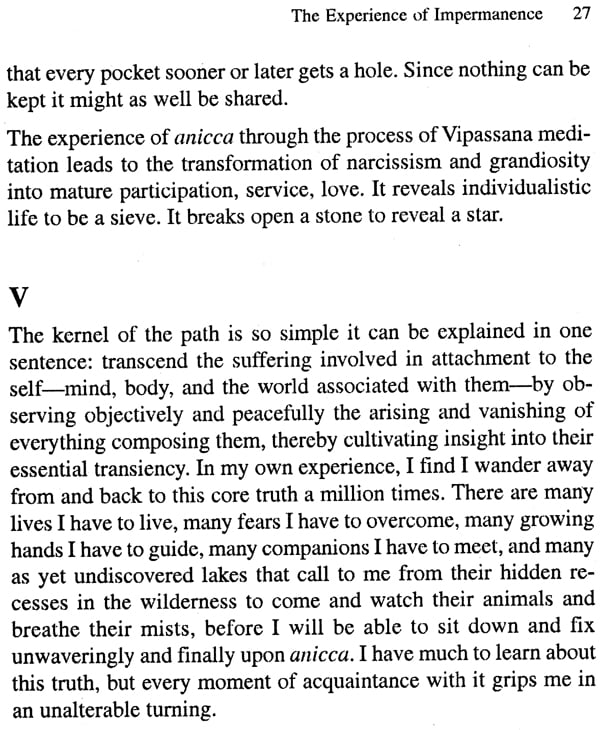
Vipassana Meditation: Healing the Healer- The Experience of Impermanence
Book Specification
| Item Code: | NAW226 |
| Author: | Paul R. Fleischman |
| Publisher: | Vipassana Research Institute |
| Language: | English |
| Edition: | 2019 |
| ISBN: | 8174140093 |
| Pages: | 28 |
| Cover: | PAPERBACK |
| Other Details | 8.50 X 5.50 inch |
| Weight | 50 gm |
Book Description
This book contains essays by Dr. Paul R. Fleischman, a senior Vipassana teacher and a Yale-trained psychiatrist and the author of nine books as well as numerous articles published in magazines and journals. Dr. Fleischman was honored by the American Psychiatric Association as "an outstanding contributor in the field of psychiatry and religion’.
The first essay discusses the therapeutic role that meditation can have, its scientific basis, and its relevance to practitioners of healing professions.
The second essay explains how Vipassana meditation can be understood through Western psychology, and why it leads the meditator away from narcissism to mature, social love. This book is ideal for Vipassana meditators as well as non-meditators.
Dr. Paul Fleischman is the author of The Therapeutic Action of Vipassana and Why I Sit, two essays that were published under one cover by the Buddhist Publication Society of Kandy, Sri Lanka, in 1986 (Wheel Series No. 329, 330). He has also written The Healing Spirit: Explorations in Religion and Psychotherapy (Paragon House Publishers, New York, 1990 paperback ed.). He took his first Vipassana course under the guidance of Shri S.N. Goenka in 1974, and has conducted courses as an assistant teacher since 1987. He has taught Psychiatry and Religion at Yale University, and practises psychiatry in Amherst, Massachusetts. In San Francisco, in May 1993, Dr. Fleischman was honoured by the American Psychiatric Association as "an outstanding contributor in the field of psychiatry and religion."
The first essay discusses the therapeutic role that meditation can have, its scientific basis, and its relevance to practitioners of healing professions.
The second essay explains how Vipassana meditation can be understood through Western psychology, and why it leads the meditator away from narcissism to mature, social love.







